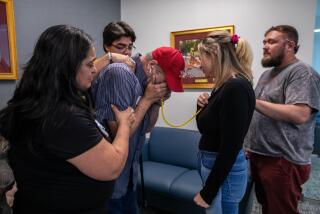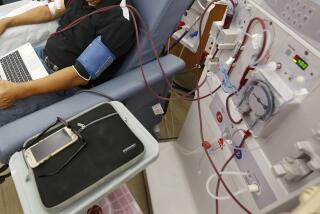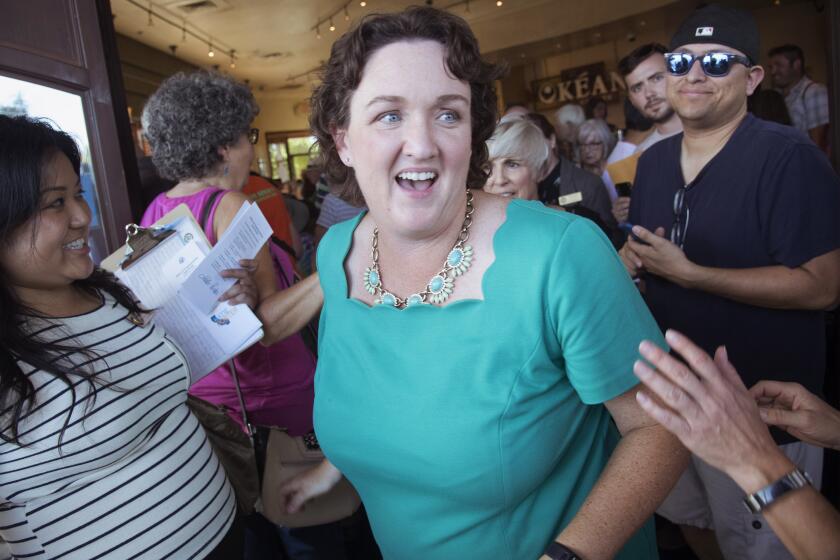U.S. Plan Addresses Shortage of Organ Donors
- Share via
WASHINGTON — The Clinton administration on Monday proposed to increase the number of organ transplants by ordering hospitals to cooperate with donor organizations.
Under the plan, hospitals would be required to inform federally certified donor organizations when patients die so the organizations can ask the families about organ and tissue donations. The program would also include a wide-ranging campaign to publicize the need for organ donations.
The shortage of kidneys, hearts, livers and other vital organs has become increasingly acute as medical advances expand the pool of transplant candidates. Administration officials say about 4,000 people died last year while waiting for transplants and 55,000 remain on transplant waiting lists.
The federal initiative builds on a Pennsylvania program that has resulted in a 40% increase in organ donations and a 51% increase in transplants. When Pennsylvania passed a law in 1994 requiring hospitals to call donor procurement organizations after every death, the number of donated organs rose sharply.
“Almost all Americans support organ donation, and families almost always consent to organ donation when loved ones have expressed that wish, but not all families have thought about organ donation or discussed it,” said Vice President Al Gore in announcing the administration’s plan.
Hospitals promptly voiced their objections to the proposal as interfering with the relationship between doctors and their patients.
“Organ donation is an issue that requires great sensitivity and is extremely personal,” said Dick Davidson, president of the American Hospital Assn. “It needs to be worked out case by case on a local basis--family, doctor and chaplain working together. . . . This proposed rule would replace these hospital local initiatives with policies established by an outside organ-procurement organization.”
The administration’s plan took the form of a proposed rule under the government’s authority to regulate all hospitals that accept federal Medicare reimbursement--a category that includes all acute-care hospitals. After the public has had a chance to comment on the proposed rule, the administration will make it final or modify it. No congressional action is needed.
Gore, a leading sponsor of the 1984 National Organ Transplant Act when he served in the Senate, noted that 27% of potential donors’ families are not asked if they would be willing to participate in organ donations. The 1984 act set up the first national computerized matching program for donors and transplant candidates.
“If a significant number of potential organ donors are being missed because these deaths are not identified or the family is not asked, then we need to work with the transplant community to immediately address this problem,” said Health and Human Services Secretary Donna Shalala, who spoke with Gore.
The administration’s new regulation would shift more responsibility to the 63 regional donor procurement organizations, which contact families about their interest in donations, match the organs of the deceased with transplant candidates and transport the organs to the patients.
Under the administration’s proposal, hospitals would have to call donor organizations when a death occurred to allow the organization’s staff to determine if there was potential for organ donation.
In 1996, according to the Health Resources and Services Administration, surgeons transplanted 20,000 vital organs, including 11,000 kidneys, 4,100 livers and 2,300 hearts. Transplant waiting lists continue to grow.
More to Read
Get the L.A. Times Politics newsletter
Deeply reported insights into legislation, politics and policy from Sacramento, Washington and beyond. In your inbox twice per week.
You may occasionally receive promotional content from the Los Angeles Times.










